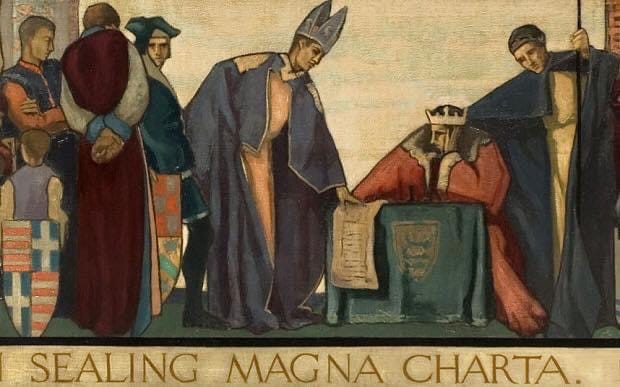Happy Magna Carta Day!
Today, June 15th, is the 807th anniversary of the sealing of the Magna Carta. It was a document which enshrined the doctrine "Lex facit regem," law makes the ruler, and the ruler is the servant of the law. The rule of law, of course, is an idea which depends on the premise that there are eternal laws, universal principles, inscribed in nature, which can…



